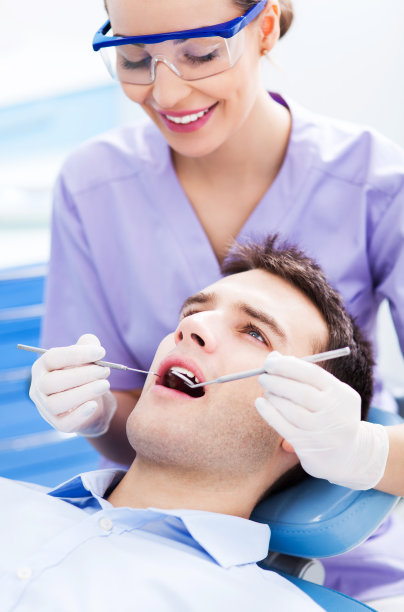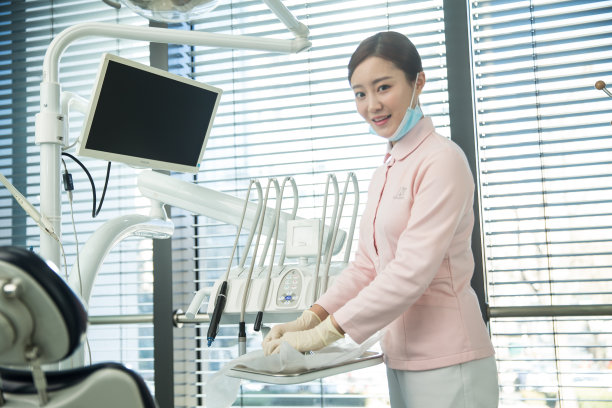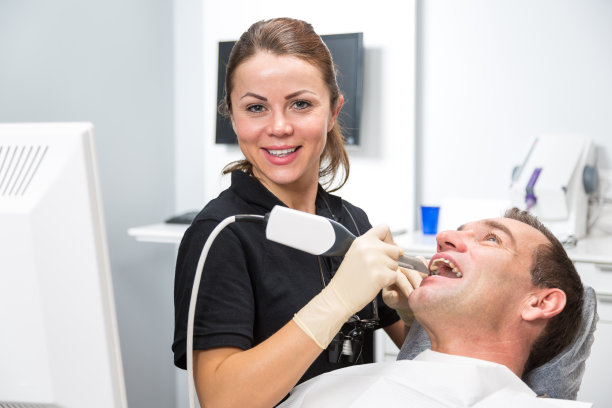Summary: After a tooth extraction, proper care and recovery are essential for maintaining long-term dental health. This article explores the significance of following post-extraction guidelines, focusing on reducing complications, managing pain and discomfort, promoting healing, and maintaining oral hygiene. Each aspect is contributed by due diligence during recovery, which plays a pivotal role in ensuring the overall health of the mouth and surrounding teeth. Through surveillance of the recovery process and diet, individuals can achieve better outcomes and avoid potential issues arising from neglecting their oral health after extraction. In conclusion, embracing proper care after tooth extraction not only aids in recovery but also sets the foundation for sustained dental wellness in the years to come.
1. Reducing Complications After Tooth Extraction

Proper care following tooth extraction is crucial for minimizing complications that could arise. One of the most common issues is dry socket, which occurs when the blood clot at the extraction site becomes dislodged. This painful condition can significantly delay healing and lead to further infection. To prevent this, patients should avoid strenuous activities, sucking motions (like using a straw), and smoking, all of which can disturb the clot.
Additionally, post-operative bleeding can be another concern. To manage this, dentists often recommend biting down gently on gauze for a few hours after the extraction. If bleeding continues for more than a few hours, it is essential to seek professional advice to address potential complications effectively.
Finally, recognizing the signs of infection, such as increased swelling, fever, or persistent pain, is vital for preventing further issues. Timely communication with a dental professional can facilitate prompt treatment, reinforcing the importance of proper care in avoiding long-term complications.
2. Managing Pain and Discomfort Effectively
Post-extraction pain management is a critical component of recovery. Given that each extraction surgery can differ in complexity, pain levels will vary from patient to patient. Physicians often prescribe pain relievers or over-the-counter medications that can help relieve discomfort while promoting a smooth recovery.
Patients should not hesitate to use ice packs on the outside of their cheeks near the extraction site. This not only helps alleviate pain but also reduces swelling, two essential factors for a comfortable recovery. It is advisable to apply the ice pack in intervals, using it for 15-20 minutes every hour as needed during the first few days.
Listening to the body and recognizing that pain is a part of the healing process is equally important. Pacing activities according to comfort levels will allow better management of pain and discourage unnecessary strain on the healing area.
3. Promoting Healing with Proper Practices
A significant part of care after a tooth extraction centers around promoting healing. A diet rich in nutrients will play a crucial role in recovery. Soft foods such as yogurt, mashed potatoes, and smoothies are recommended initially, gradually introducing more solid foods as comfort increases. This helps sustain bodily healing without placing undue stress on the extraction site.
Staying hydrated is equally vital. Adequate liquid intake helps flush out toxins and keeps the body functioning effectively, enhancing the body’s ability to heal. However, patients should avoid consuming hot or carbonated drinks, as they can irritate the extraction site.
Moreover, proper rest is essential. Patients should avoid strenuous workouts and prioritize adequate sleep to give their bodies time to heal. Establishing a calm environment while refraining from high-energy activities can significantly contribute to a smoother recovery.
4. Maintaining Oral Hygiene After Extraction
Oral hygiene is critical during the recovery period after a tooth extraction. However, it is essential to adopt gentle practices at this time. It is generally advised to wait at least 24 hours post-extraction before resuming regular brushing. Gentle rinsing with warm saltwater can also help keep the mouth clean without disturbing the extraction site.
Continuing to brush and floss other teeth is essential to maintain overall oral health. Neglecting oral care in adjacent areas could lead to other dental issues, thereby complicating recovery. A well-rounded approach that includes focused care on the remaining teeth will encourage a healthier mouth.
Regular follow-up appointments with a dental professional will also be beneficial. These visits provide an opportunity for the dentist to monitor healing progress and address any concerns that may arise promptly. Keeping that line of communication open is crucial for a holistic approach to oral care.
Summary: Proper care and recovery after tooth extraction are pivotal for ensuring long-term dental health. Understanding the importance of minimizing complications, managing pain, promoting healing, and maintaining oral hygiene forms a comprehensive strategy that not only facilitates recovery but also essentially contributes to overall dental wellness. Neglecting these aspects may lead to adverse effects, while diligent care sets the foundation for a healthy smile.
This article is compiled by Vickong Dental and the content is for reference only.
Vickong Dental
Vickong Dental is a large medical group established in Hong Kong in 2008 by professors from well-known medical universities in Guangdong and Hong Kong, as well as medical doctors from key national '985' universities (including Master's supervisors and senior professors). The chain of branches brings together expert dentists with PhDs and Master's degrees from Hong Kong and Mainland China, committed to providing high-quality dental treatment.
"Vickong Dental Practices the University Motto of 'Healing and Serving Society,' with a Stable Operation for Sixteen Years. It Has Been honored with Hong Kong Enterprise Leaders's Choice,' and is a Global Trusted Implant Center for the Nobel Implant System. Recommended by Hong Kong Metro Broadcast and Guangdong Television, it Serves Customers from Over Thirty Countries and Regions, Gaining the Trust and Favor of Citizens from the Guangdong-Hong Kong-Macau Greater Bay Area and Surrounding Cities.

Thousands of customers' unanimous praise
The most recognized and highly recommended dental service by customers in the Guangdong-Hong Kong-Macau Greater Bay Area
We Ensure You Receive Detailed Care and Attention Here
Hong Kong standards, Shenzhen prices, Your Trusted English-speaking dentists

Vickong Dental Medical-Grade Instrument Disinfection Process
Vickong Dental Medical-Grade Instrument Disinfection Process

Vickong Dental Chain: A Warm and Comfortable Environment for Treatment






Appointment Hours

Q&A
Why choose Vickong Dental?
Vickong Dental practices the university motto 「Medicine to Benefit Society」, with each branch bringing together highly qualified dentists with doctoral and master’s degrees from Hong Kong and the Mainland, and has maintained seventeen years of steady operation。Recipient of 「2024 Hong Kong Enterprise Leaders Brand」, 「2025 Hong Kong Enterprise Leaders Brand」, a Nobel Biocare Global Trusted Implant Center, and a brand recommended by Metro Radio Hong Kong and Guangdong TV。
To date, we have served customers from more than thirty countries and regions,earning exceptionally high word-of-mouth recognition and trusted recommendations from residents across the Guangdong-Hong Kong-Macao Greater Bay Area and surrounding cities
We have eight major branches in Zhuhai、Shenzhen,and a consultation and service assurance center in Hong Kong,so you can book a free consultation at any time for any questions,which is very reassuring.
If I do not accept the quotation after the CT scan, will I be charged??
No! As long as the actual treatment has not started, you will not be charged any fees.
Will there be any additional charges during the treatment process?
No, there won’t be any additional charges. Before treatment begins, we will clearly explain the treatment plan and its corresponding fees. Only after the patient agrees and signs the consent form will we proceed with the dental service.
Can I pay in Hong Kong dollars?
Yes. Vickong Dental accepts payment in Hong Kong dollars. The amount will be converted based on the exchange rate of the day, and the applicable rate will be clearly communicated to you in advance.
Can I reschedule my appointment at any time?
Yes. Please contact us via **WeChat** or **WhatsApp** as early as possible, providing your original appointment time and details, along with your preferred new date and time slot for rescheduling.













